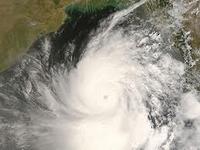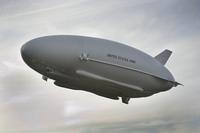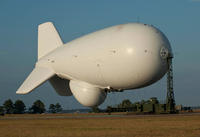-
Underground spies to secure Indo-Pakistan border

With the discovery of a 400-foot long tunnel at the India-Pakistan Border, the IndianHome Ministry has decided to acquire Unattended Ground Sensors (UGS) that could be installed along the international border with Pakistan as an important line of defense
-
-
Farmers upset by plan for water banking system

Depending on the depth of the drilling, it can take anywhere from two gallons to two million gallons of water to frack one well; drilling companies consumeenough water in their fracking operations to meet the needs of between 66,400 and 118,000 households; in the parched Midwest, farmers raise questions about water-use priorities
-
-
Penn Stater is first in family to earn masters degree

Isiah Jones of Harrisburg will receive a master’s degree in Homeland Security-Information Security and Forensics, which he earned online through Penn State’s World Campus; the Penn State World Campus specializes in adult online education, delivering more than eighty of Penn State’s most highly regarded graduate, undergraduate, and professional education programs through online formats
-
-
Hurricanes which pass over fresh water can be stronger

About 60 percent of the world’s population resides in areas that are prone to hurricanes or cyclones; researchers find that if a hurricane’s path carries it over large areas of fresh water, it will potentially intensify 50 percent faster than those that do not pass over such regions, meaning it has greater potential to become a stronger storm and be more devastating
-
-
Earthquake risks in Europe

How strong can earthquakes in Germany be? Where in Europe are the earthquake activities concentrated? These questions are the basis for risk assessments and become relevant when it comes to the safety of buildings or the generation of tsunami; a new Earthquake Catalogue for Europe and the Mediterranean, which offers details of 45,000 earthquakes during the last millennium, suggests answers to these questions
-
-
World’s largest blimp passes flight test

The world’s largest, lighter-than-air, optionally piloted aircraft — the U.S. Army’s Long Endurance Multi-Intelligence Vehicle (LEMV) – completed its first test flight in Lakehurst, New Jersey, the birthplace of the U.S. storied military airship past; the LEMV will provide improved ISR capabilities to the U.S. Army in the form of an “unblinking stare” over ground troops, ranging anywhere from one day to multiple weeks
-
-
First class of U.S. Army soldiers completed training with Raytheon's JLENS

JLENS uses a powerful integrated radar system to detect, track, and target a variety of threats, allowing military units to defend against threats, including hostile cruise missiles, low-flying manned and unmanned aircraft, large caliber rockets, and moving surface vehicles such as boats, SCUD-launchers, automobiles, and tanks
-
-
College buys small UAV for first-responder training program
Sinclair Community College in Dayton, Ohio purchases small unmanned aerial system (SUAS) from UTC Aerospace Systems for use in the college’s training program for first responders
-
-
First ever outdoor flight test of laser powered UAS
Lockheed Martin, LaserMotive, Inc. have completed a series of flight tests of the Stalker Unmanned Aerial System (UAS) to validate the performance of an innovative laser power system
-
-
Silent Falcon solar electric unmanned aerial system unveiled
Silent Falcon UAS Technologies last week unveiled the much anticipated Silent Falcon solar electric unmanned aerial system (UAS) at the Association for Unmanned Vehicle Systems International (AUVSI) conference in Las Vegas
-
-
Advanced explosives detector sniffs out previously undetectable amounts of TNT

TNT and other conventional explosives are the mainstays of terrorist bombs and the anti-personnel mines that kill or injure more than 15,000 people annually in war-torn countries; in large, open-air environments, such as airports, train stations, and minefields, concentrations of these explosives can be as small as a few parts of TNT per trillion parts of air, making it impossible for conventional bomb and mine detectors to detect the explosives and save lives
-
-
Climatic impacts of megapolitan expansion
Arizona’s Sun Corridor is the most rapidly-growing megapolitan area in the United States. Nestled in a semi-arid environment, it is composed of four metropolitan areas: Phoenix, Tucson, Prescott, and Nogales. With a population projection expected to exceed 9 million people by 2040; a first study of its kind, attempting to quantify the impact of rapidly expanding megapolitan areas on regional climate, showed that local maximum summertime warming resulting from projected expansion of the urban Sun Corridor could approach 4 degrees Celsius
-
-
Engineers solve leaky water pipes problem

Leaky pipes are a common problem for the water industry: according to the U.K. Water Services Regulation Authority (OFWAT), between 20 and 40 percent of our total water supply can be lost through damaged pipes; developing more accurate ways of finding leaks would enable water companies to save revenue and reduce their environmental impact
-
-
NIST ballistic standard tie Guns to criminals and crime scenes
Nearly 200,000 cartridge cases are recovered annually at U.S. crime scenes; thanks to a new reference standard developed by the National Institute of Standards and Technology (NIST), law enforcement agencies will have an easier time linking these cartridge cases to specific firearms
-
-
Researchers move a step closer toward universal flu vaccine and therapies
Researchers describes three human antibodies that provide broad protection against Influenza B virus strains; the same team had previously reported finding broadly neutralizing antibodies against Influenza A strains; the work is a key step toward “universal” vaccine and therapies against flu
-
More headlines
The long view
New Technology is Keeping the Skies Safe
DHS S&T Baggage, Cargo, and People Screening (BCP) Program develops state-of-the-art screening solutions to help secure airspace, communities, and borders
Factories First: Winning the Drone War Before It Starts
Wars are won by factories before they are won on the battlefield,Martin C. Feldmann writes, noting that the United States lacks the manufacturing depth for the coming drone age. Rectifying this situation “will take far more than procurement tweaks,” Feldmann writes. “It demands a national-level, wartime-scale industrial mobilization.”
How Artificial General Intelligence Could Affect the Rise and Fall of Nations
Visions for potential AGI futures: A new report from RAND aims to stimulate thinking among policymakers about possible impacts of the development of artificial general intelligence (AGI) on geopolitics and the world order.
Smaller Nuclear Reactors Spark Renewed Interest in a Once-Shunned Energy Source
In the past two years, half the states have taken action to promote nuclear power, from creating nuclear task forces to integrating nuclear into long-term energy plans.
Keeping the Lights on with Nuclear Waste: Radiochemistry Transforms Nuclear Waste into Strategic Materials
How UNLV radiochemistry is pioneering the future of energy in the Southwest by salvaging strategic materials from nuclear dumps –and making it safe.
Model Predicts Long-Term Effects of Nuclear Waste on Underground Disposal Systems
The simulations matched results from an underground lab experiment in Switzerland, suggesting modeling could be used to validate the safety of nuclear disposal sites.
